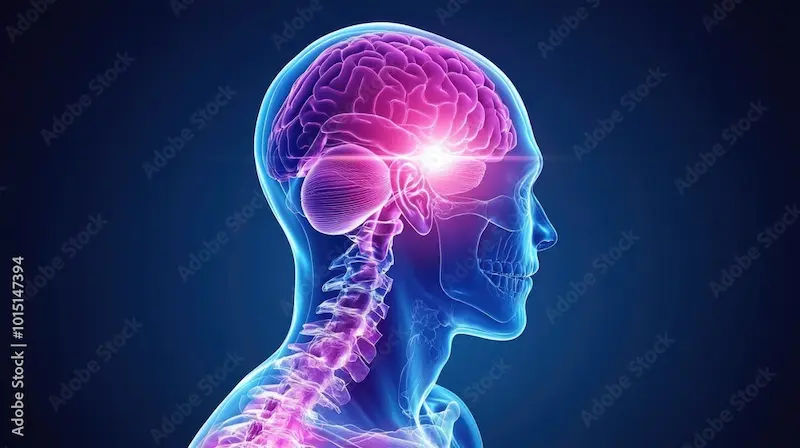- male
- 50 Years
- 20/02/2025
I'm really concerned about heart attacks and wanted to get some clarity on it. Could you explain how a heart attack actually happens and what steps one can take to recover from it or prevent it from happening in the first place? I'm just trying to understand more for peace of mind.
Answered by 1 Apollo Doctors
Herat attack is something where blood supply to heart muscles is compromised due to fat that blocks the blood supply,which makes heart to give up and leads to heart attack,to prevent this healthy life style with balanced diet and regular check ups would help
Dr. Dr Khaleel Suggests...
Consult a Cardiologist
Answered 04/07/2025
0
0

Ask Apollo
AI powered Health Chatbot
-
What Happens During a Heart Attack
- A heart attack occurs when blood flow to the heart muscle is blocked, often by a clot in a narrowed artery.
-
Recovery Steps After a Heart Attack
- Follow medical advice and take prescribed medications like blood thinners and statins.
- Implement lifestyle changes: healthy diet, regular exercise, and quit smoking.
- Attend regular follow-ups with a cardiologist and consider cardiac rehabilitation.
-
Prevention Strategies for a 50-Year-Old Male
- Eat a heart-healthy diet low in saturated fats, salt, and sugar.
- Engage in regular physical activity suitable for your fitness level.
- Manage blood pressure, cholesterol, and diabetes.
- Avoid tobacco and limit alcohol consumption.
- Practice stress management techniques.
-
When to Seek Medical Help
- Be aware of symptoms like chest pain, shortness of breath, or unusual fatigue.
- Take immediate action if a heart attack is suspected.
-
Relevant Medical Specialties and Tests
- Consult a cardiologist for management.
- Common tests include ECG, blood tests, and stress tests.
Recommended next steps
Consult a Cardiologist or Take a CBC Test (Complete Blood Count) Test
Answered 10/09/2025
0
0

More Cardiology Health Queries
View allMy dad is 62 and has been having some real trouble with his breathing. After seeing a doctor, the breathing got a bit better, but he's still coughing a lot. A month later, something strange happenedhe was in bed and suddenly gas was coming out of his mouth, and he had chest pain at the same time. After using the toilet, he felt a little better. Now he's in a hospital in Siliguri, and the doctors there say his heart is a bit weak. I'm thinking about consulting with doctors in South India, but I'm a bit lost on where to go. I heard CMC Vellore has long wait times, and Apollo Chennai is a bit too pricey for us. Can you help suggest the best hospital and doctor in the south for his situation?
Considering your father's condition, it's essential to consult with a cardiologist specializing in heart conditions. Here are some top hospitals and doctors in South India: Top Hospitals 1. Apollo Hospital, Chennai - Known for its advanced technology and world-class doctors, consult
Answered by 1 Apollo Doctors
I'm concerned about whether a blood pressure reading of 12070 is considered normal or on the lower side. Could you give me some advice on this? What should I be aware of or consider doing next?
Normal. if u get symptoms like vcough,breathing difficulty, tremors,seizures immediately physician opinion is advised to the patient.
Answered by 1 Apollo Doctors
I'm Rohit, and I'm from Delhi. Back in December, I had some chest pain and got an ECG done. The doctors thought it might be type 1 Brugada morphology. I've since done a bunch of tests like ECG, ECHO, TMT, CT Angiography, and a 24-hour holter test, all of which came back negative. The doctor said it's asymptomatic since I don't have ventricular tachycardia, ventricular fibrillation, a family history of sudden cardiac death in a close relative under 45, or anything like that. Now, I'm planning to get married and just want to be sure about the Brugada syndrome diagnosis. Do you think it's a good idea for me to take a Flecainide or Ajmaline challenge test to confirm whether I have Brugada syndrome? Also, could you recommend any hospitals in India, especially near New Delhi, where I could get this test done? Would appreciate any info you have!
Yes, you can undergo a FlecainideAjmaline challenge test to confirm the presence of Brugada syndrome. This test is commonly used to unmask the Brugada ECG pattern in individuals suspected of having the syndrome. In India, you can consider getting this test done at reputed hospitals like AIIMS (All India Institute of Medical Sciences) in New Delhi, or at Max Super Speciality Hospital in Saket, New Delhi. It is important to undergo this test under the supervision of a cardiologist experienced in managing Brugada syndrome, as the test involves administration of a sodium channel blocker (Flecainide or Ajmaline) which can induce changes in the ECG pattern characteristic of Brugada syndrome. This test should only be performed in a hospital setting with facilities for managing any potential complications that may arise during the test. Before proceeding with the FlecainideAjmaline challenge test, it is advisable to discuss the potential risks and benefits of the test with your healthcare provider to make an informed decision.
Answered by 1 Apollo Doctors
Disclaimer: Answers on Apollo 247 are not intended to replace your doctor advice. Always seek help of a professional doctor in case of an medical emergency or ailment.





